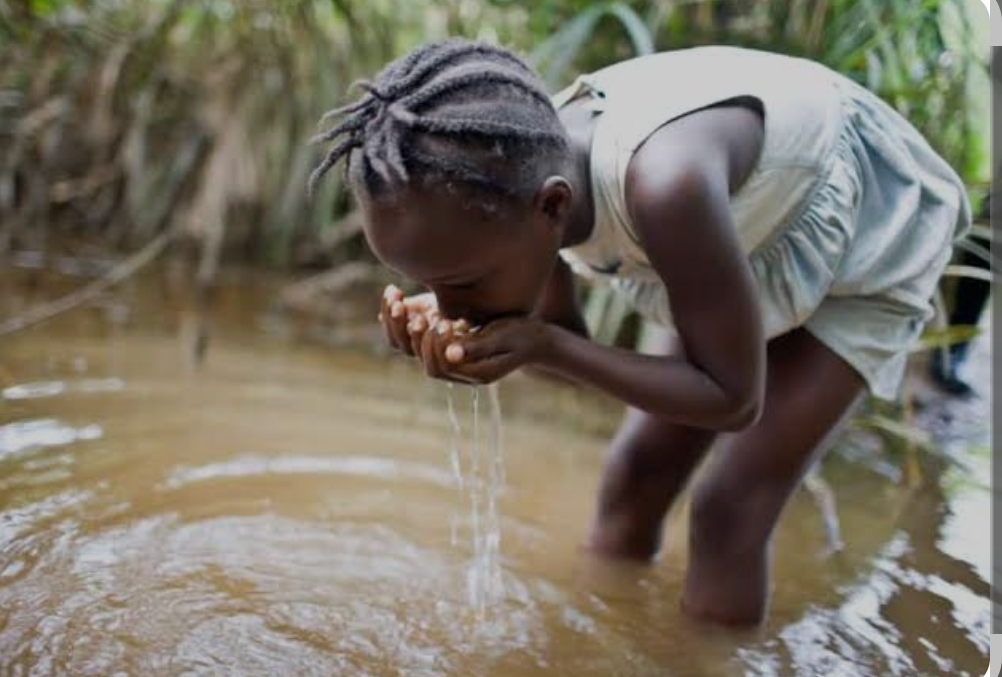It is still quite difficult for many people in Nigeria to believe that there are people who face challenges getting clean water to drink and use for their daily domestic needs as many of us believe that clean water is in abundance as a natural resources.
However, the truth is that Nigeria faces a significant clean water crisis due to rapid population growth, urbanization, industrialization, and climate change. Here is an outline of the primary challenges and potential solutions to this problem.
Challenges
Population Growth and Urbanization:
Rapid population growth, particularly in urban areas, strains existing water resources and infrastructure.
Urban areas often lack the infrastructure needed to provide clean water, leading to overcrowding and unregulated access points, which increase the risk of contamination.
Poor Infrastructure:
Aging, poorly maintained, or nonexistent water infrastructure hampers the delivery of clean water, especially in rural areas.
Poor sanitation facilities and open defecation near water sources lead to water contamination.
Pollution and Industrial Waste:
Industrial waste, agricultural runoff, and improper disposal of waste significantly contribute to water pollution in Nigeria.
Inadequate enforcement of regulations around waste disposal exacerbates the problem.
Climate Change and Environmental Factors:
Climate change has altered rainfall patterns, leading to frequent droughts and floods that affect the availability and quality of water.
Prolonged dry seasons reduce the amount of water in rivers and reservoirs, while floods can damage infrastructure and pollute water sources.
Insufficient Funding and Governance:
Inadequate funding for water projects and maintenance of infrastructure makes it challenging to meet the water demand.
Corruption and lack of governance lead to inefficiencies, misallocation of funds, and underinvestment in water management.
Public Awareness and Education:
Lack of awareness about the importance of water conservation and hygiene practices contributes to contamination and misuse of water resources.
Solutions
Investment in Infrastructure:
Invest in building and maintaining robust water supply systems, particularly in rural and underserved urban areas.
Repair and upgrade existing infrastructure to prevent leakages, contamination, and wastage.
Regulation and Enforcement:
Strengthen regulatory frameworks for industries to ensure proper waste disposal and prevent water pollution.
Establish stricter penalties for illegal waste disposal and incentivize compliance with environmental standards.
Community-Driven Initiatives:
Empower local communities through training programs on water conservation, sanitation, and hygiene practices.
Involve community members in managing local water resources to improve accountability and sustainable use.
Rainwater Harvesting and Alternative Water Sources:
Promote rainwater harvesting as an alternative water source, especially in areas with inconsistent water supply.
Explore alternative sources such as desalination for coastal regions and encourage the use of boreholes with proper regulation.
Public-Private Partnerships (PPPs):
Leverage PPPs to increase funding, technology, and expertise in water management and infrastructure development.
Collaborate with private companies for the implementation of cost-effective and scalable water solutions.
Education and Awareness Campaigns:
Launch campaigns to educate citizens on the importance of water conservation and sanitation practices.
School programs can instill water-saving habits from a young age and build a culture of environmental responsibility.
Climate Adaptation Strategies:
Implement strategies to mitigate climate impact on water resources, such as flood control systems and water conservation techniques.
Develop early warning systems for droughts and floods to prepare communities for water-related emergencies.
Conclusion
Tackling Nigeria's clean water problem requires a combination of infrastructure investment, strong governance, community involvement, and sustainable practices. By addressing these challenges through collaborative and innovative solutions, Nigeria can move toward ensuring safe and clean water for its population.
